Meaning and Definitions of Curriculum Chapter Notes | Crash Course for UGC NET Education PDF Download
Introduction
Curriculum is a plan for learning that reflects the beliefs and goals of education in society. It includes a structured framework to translate these beliefs into learning experiences for students. A well-designed curriculum supports knowledge acquisition, skill development, and the nurturing of positive attitudes and values for overall personality growth.
The modern concept of curriculum extends beyond traditional academic subjects to encompass all experiences students gain through various activities in school, including classrooms, libraries, laboratories, workshops, playgrounds, and informal interactions with teachers. It plays a crucial role in shaping students' lives and fostering balanced personalities.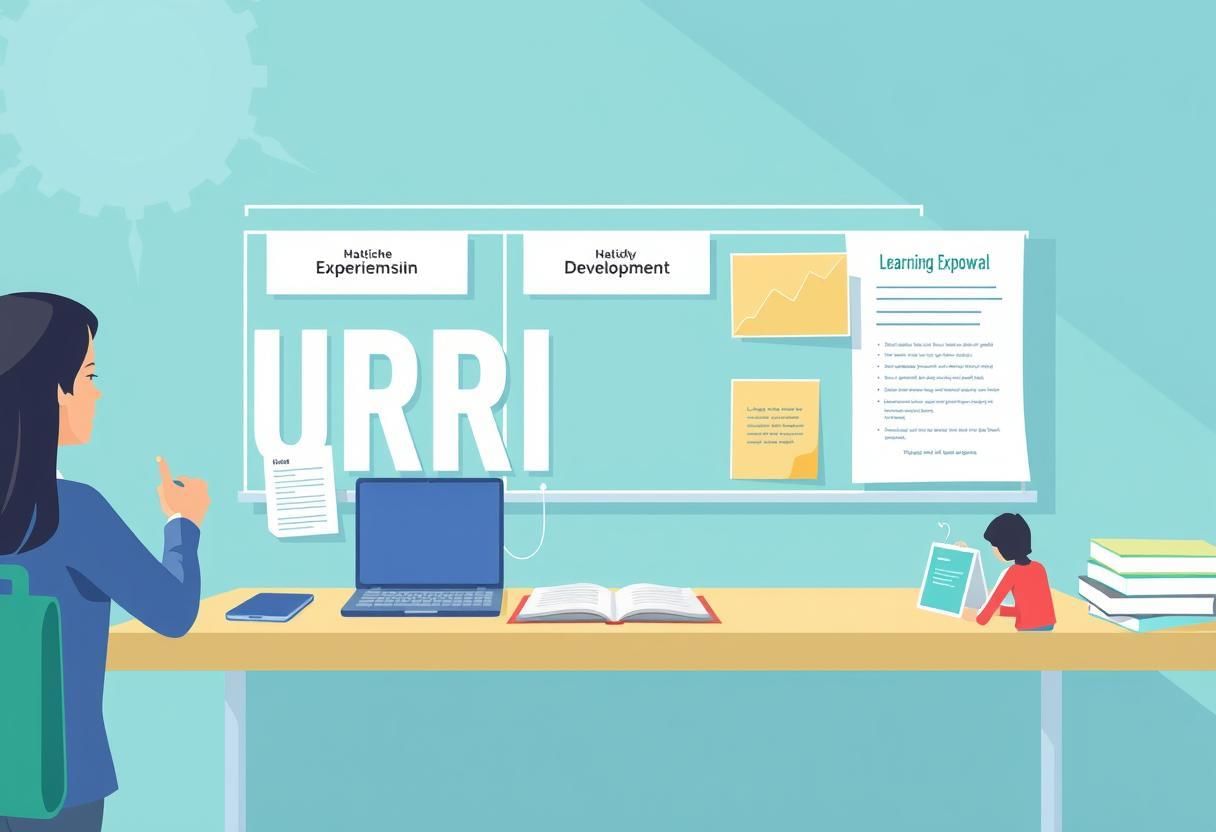 Educational Framework
Educational Framework
Essentially, a curriculum is a systematic arrangement of selected learning experiences planned by a school for a specific group of students to achieve the goals of an educational program. It is closely tied to the process of education, with curriculum serving as a means or framework for learning.
According to educational theorists, curriculum involves the organized development of knowledge and experience under the guidance of an institution to enhance learners' control over their learning. It encompasses all activities, experiences, and learning opportunities for which an institution is responsible, either intentionally or inadvertently.
Characteristics of Curriculum
- Continuously Evolving: The curriculum must evolve continuously from one period to another, adapting to the present. Effective curricula require ongoing monitoring and evaluation to meet the needs of a modern and dynamic community.
- Needs-Based: It should be based on the needs of the people, arranged in a proper sequence to address timely challenges and make education more responsive.
- Complex Details: The curriculum includes complex details such as guidance and counseling, health services, projects, and proper instructional equipment that facilitate learning.
- Developmental Needs: It should fulfill the needs and requirements of developing children.
- Community Responsive: The curriculum complements and cooperates with other community programs, being responsive to community needs.
- Learning Objectives: Each curriculum objective should constitute learning that is durable (useful for a long time), significant (major impact on functioning), and transferable (useful in other contexts).
- Assessment Criteria: Each outcome assessment and evaluation should include criteria for judging learning and standards of quality.
 Educational Progress
Educational Progress
Principles of Curriculum
The effectiveness of a curriculum hinges on several key principles that must be considered during its formulation.
Here are the essential principles:
- Principle of Child-Centeredness: This principle emphasizes that learning experiences provided to children at a specific age and grade should align with their age, abilities, interests, mental development, and prior experiences. The curriculum must be tailored to suit the developmental stage and individual characteristics of the children.
- Principle of Comprehensiveness: A curriculum should include necessary details and not just a list of topics. It should provide guidance on material aids, techniques, life situations, related activities, and possibilities of correlation to assist teachers and textbook authors.
- Principle of Correlation: Subjects within the curriculum should be interconnected. Teaching subjects in isolation is unpsychological, as the content of various subjects is often related and can support the child's overall understanding.
- Principle of Utility: Only those topics and learning experiences that are deemed useful to students should be included in the curriculum.
- Principle of Forward Looking: The curriculum should include topics and learning experiences that will be beneficial for students in their future lives. It aims to prepare students for future challenges and opportunities.
- Principle of Environmental Centeredness: The curriculum should be developed with consideration for the physical and social environment of the students. Subject material and learning experiences should be linked to events, problems, and situations prevalent in their surroundings.
 Holistic Education
Holistic Education
Curriculum Development
Curriculum development involves putting into action the decisions made during the planning phase of the curriculum. Once decisions are made about the curriculum's nature, organization, and focus, curriculum development takes on the task of creating a curriculum based on those decisions.
Nicholls and Nicholls define curriculum development as "the planning of learning opportunities aimed at bringing about specific changes in students and assessing the extent to which these changes have occurred." This perspective emphasizes that curriculum development and planning is an ongoing and dynamic process.
The process of curriculum development can be visualized as a continuous cycle that includes:
- Formation of Objectives: Establishing clear goals for what the curriculum aims to achieve.
- Implementation of Teaching-Learning Experiences: Carrying out the planned teaching and learning activities.
- Evaluation of Objectives: Assessing how well the objectives have been met and the extent of the changes in students.
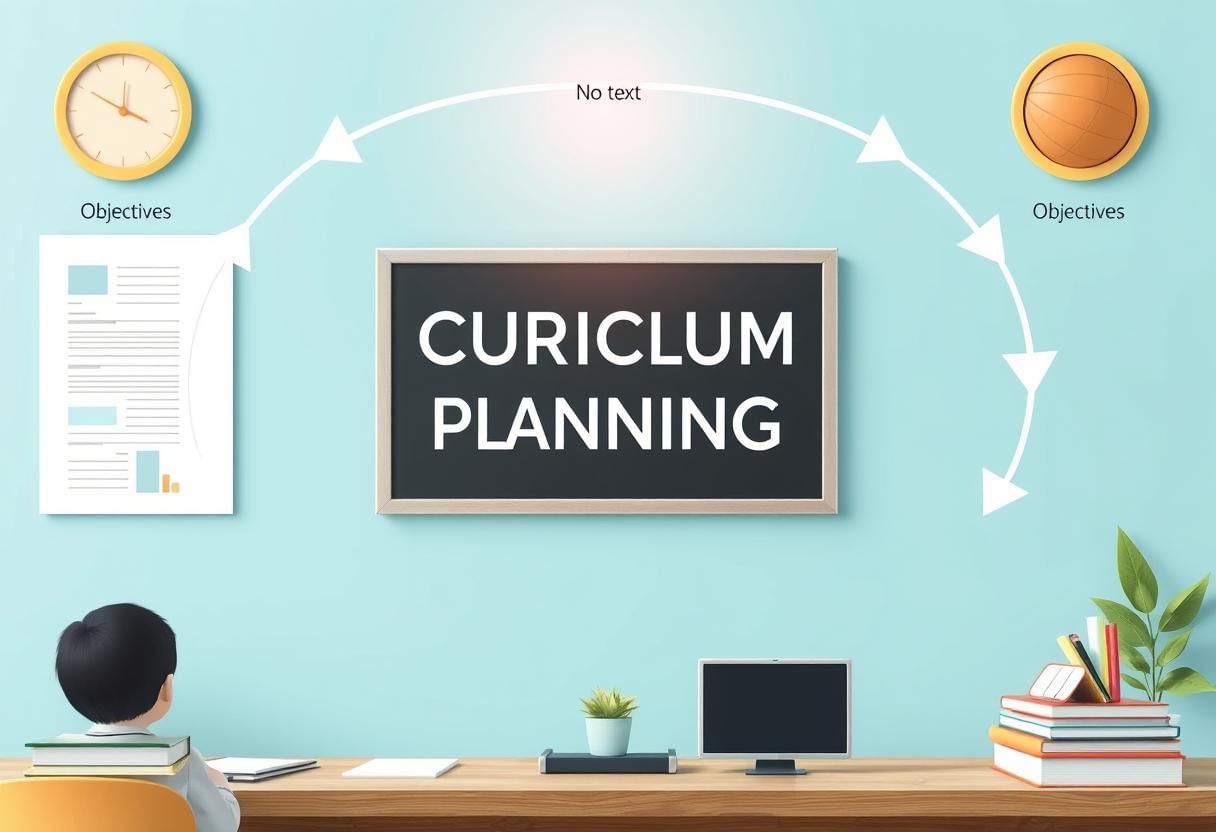 Curriculum Cycle
Curriculum Cycle
Strategies for Developing a Curriculum
Problem Identification
- When creating a curriculum, it's crucial to identify problem areas that need to be addressed. This helps in improving the content and ensuring the curriculum is relevant.
- Recognizing these issues is an important strategy because it highlights what needs to be modified for an effective curriculum.
Needs Assessment of Learners
- Developing a curriculum should focus on meeting students' needs to enhance their learning.
- This involves considering desired outcomes, assessment roles, current student achievements, and program content.
- A structured needs assessment is usually part of an effective curriculum development process, gathering information to guide the development.
Goals and Objectives
- Curriculum goals are broad statements aimed at long-term outcomes, guiding students to become productive members of society.
- Goals are general and lead to specific objectives, helping students improve their societal contributions.
Educational Strategies and Implementation
- Educational strategies must be clear and aligned with curriculum requirements.
- Innovative and effective approaches facilitate students in gathering relevant information from teachers.
- Proper implementation of these strategies maximizes the output in the curriculum development process.
Feedback and Evaluation
- The curriculum development cycle concludes with a thorough evaluation of the program's effectiveness and impact.
- This involves detailed review and analysis using both quantitative and qualitative measures.
Stages of Curriculum Development
1. Planning: This stage involves considering the vision, mission, goals, and educational philosophy of the school. These elements will guide the desired learning outcomes for students. Planning is crucial as it sets the foundation for identifying curriculum needs and conducting assessments and analyses.
2. Curriculum Designing: This stage focuses on conceptualizing the curriculum, including selecting and organizing content, learning experiences, and assessment procedures. It also involves determining the resources to be used and stating the intended learning outcomes.
3. Curriculum Implementing: This stage involves putting the curriculum plan into action in the learning environment. Teachers facilitate learning according to the curriculum design, aiming to achieve the intended learning outcomes. This is where the actual educational activities take place.
4. Evaluation: Evaluation assesses the extent to which the desired outcomes have been met. It is an ongoing process that monitors learning progress and identifies factors supporting implementation. Evaluation results are essential for making improvements and corrective measures, providing valuable feedback to curriculum planners and implementers. Curriculum Innovation
Curriculum Innovation
Foundations of Curriculum Planning
Curriculum Foundations: The foundations of curriculum establish the boundaries of knowledge and determine what constitutes a valid source of information in the field. These foundations are typically viewed from philosophical, sociological, and psychological perspectives.
Philosophical Foundation of Curriculum: Philosophy helps to define the purpose of education and the roles of various participants. It influences the goals of the curriculum based on different perceptions of truth, ranging from absolute to relative and from moralistic to scientific. There are four major philosophical positions that impact curriculum development:
- Idealism: Focuses on the cultivation of intellectual, moral, and aesthetic activities. Subjects like languages, literature, sciences, social studies, and mathematics are included for intellectual development, while fine arts, poetry, ethics, and religion are emphasized for aesthetic development.
- Realism: Advocates for a curriculum closely related to the actual realities of life, moving away from narrow and abstract curricula.
- Pragmatism: A practical and utilitarian philosophy that influences curriculum by encouraging problem-solving and the creation of new values for a better and happier life.
- Existentialism: Emphasizes individual freedom, choice, and personal responsibility in education, allowing students to pursue their interests and define their own paths.
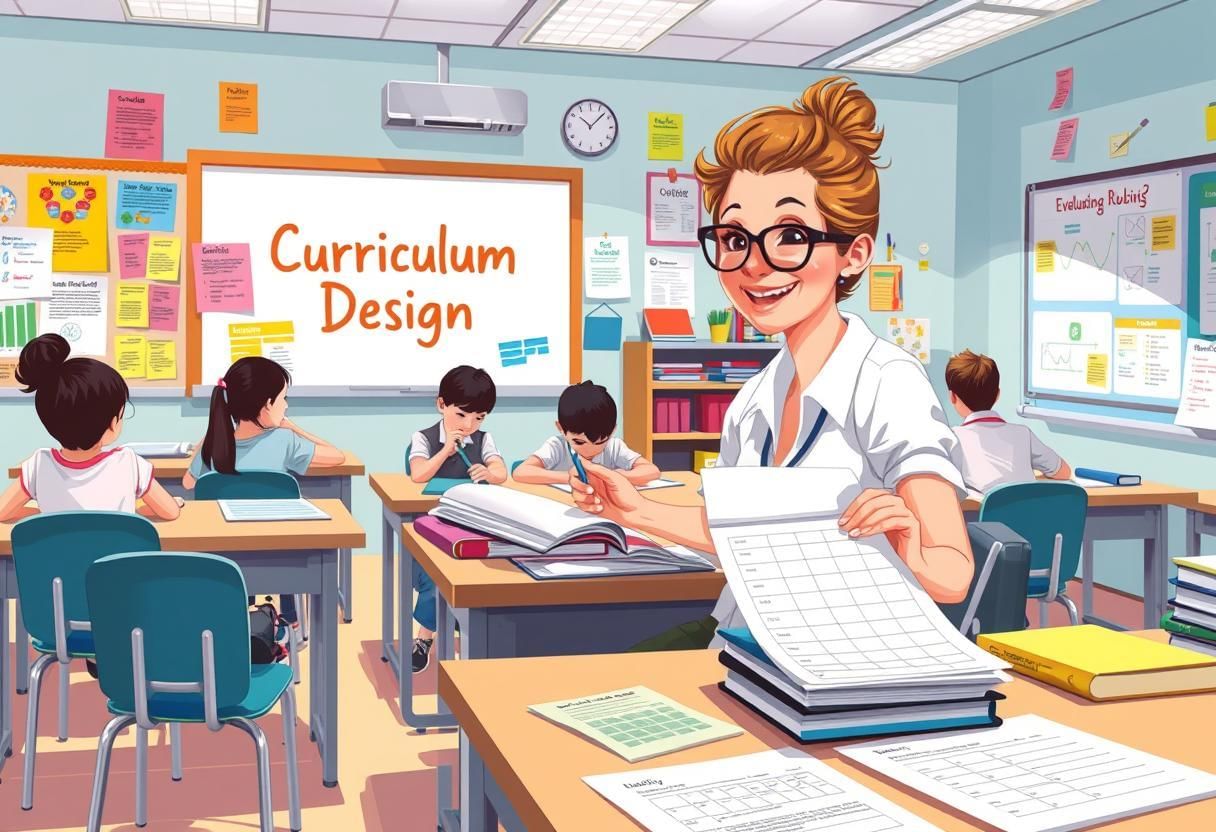 Curriculum Strategy
Curriculum Strategy
Sociological Foundation of Curriculum
Education is fundamentally a societal process, conducted for and by society. The evolving nature of culture significantly influences education, necessitating its adaptation to changing circumstances. Therefore, the curriculum must be designed to reflect these changes and promote desirable transformations in learners.
Social reconstructionists critique the current social, political, and economic order, viewing the curriculum as a means to reshape society. They advocate for a curriculum that presents a vision of an ideal society and works towards reconstructing the present based on that vision.
According to reconstructionists, the curriculum should engage learners with pressing global issues, fostering their ability to critically analyze these problems and develop potential solutions. This approach aims to deepen learners' understanding of society and inspire them to strive for a better social order.
Psychological Foundation of Curriculum
The psychological foundation of curriculum involves the application of psychological principles and theories to guide the selection, organization, and implementation of curriculum content. It recognizes the importance of understanding how learners acquire knowledge, develop skills, and engage with the learning material. Innovative Education
Innovative Education
Key Aspects of the Psychological Foundation
- Theories of Learning: The curriculum is based on various theories of learning, including behaviorist, cognitive, and phenomenological approaches. These theories help in understanding how learners process information, respond to stimuli, and engage with the learning environment.
- Laws of Learning: The curriculum is organized based on the principles governing learning, such as the laws of readiness, exercise, and effect. These laws inform the selection and sequencing of content to facilitate effective learning.
- Transfer of Learning: The curriculum takes into account the transfer of learning from one context to another. It emphasizes the relevance and applicability of knowledge and skills in real-life situations, promoting deeper understanding and retention.
- Growth and Development: The curriculum is designed considering the physical and mental development of learners. It aligns with their developmental stages, ensuring that the content is appropriate and challenging for their age and ability levels.
- Creativity and Personality Development: The curriculum encourages creativity and supports the holistic development of learners' personalities. It includes activities and experiences that foster creative thinking, problem-solving, and social-emotional skills.
Role of Teachers: Teachers play a crucial role in executing the curriculum based on its psychological foundation. They make informed decisions about the content, methods, and assessment strategies, considering the diverse needs and abilities of learners. Teachers also create a supportive and stimulating learning environment that promotes engagement, motivation, and positive learning outcomes.
Curriculum Development Process
The process of curriculum development involves several stages, including:
- Needs Assessment: Identifying the learning needs, interests, and preferences of learners, as well as the goals and objectives of the curriculum.
- Content Selection: Choosing the relevant content and skills to be included in the curriculum, based on the principles of learning and development.
- Organization and Sequencing: Organizing the content in a logical and coherent manner, considering the progression of difficulty and the relationships between different topics.
- Implementation: Putting the curriculum into practice, including preparing teaching materials, training teachers, and communicating with stakeholders.
- Evaluation and Review: Assessing the effectiveness of the curriculum in achieving the desired learning outcomes and making necessary revisions based on feedback and evaluation results.
In summary, the psychological foundation of curriculum emphasizes the importance of understanding how learners learn and develop. By applying psychological principles and theories, educators can design and implement curricula that are aligned with learners' needs, promote effective learning, and support holistic development.
Different Types of Benchmarking
Benchmarking is a complex and comprehensive process that can be used for various purposes. Traditionally, it was primarily a data comparison tool. However, its role has evolved into a more investigative and research-informed process, gaining traction in the higher education sector and enhancing decision-making rigor at the institutional level.
The university employs several types of benchmarking to foster continuous improvement: internal, competitive, functional, and generic benchmarking. Performance Evaluation
Performance Evaluation
Benchmarking can also be categorized as:
- Quantitative: Focuses on measurable data outputs.
- Qualitative: Examines the systems and processes that produce outcomes, with benchmarks representing attributes of best practices.
Internal Benchmarking: Involves comparing work processes within different departments, divisions, or segments of the university. Advantages include easier data collection and identification of areas for future external investigation. However, the primary disadvantage is the lower likelihood of discovering significant process improvement breakthroughs.
Competitive Benchmarking: Measures an organization’s performance against its peers and competitors. This type often involves third-party data collection and analysis due to the proprietary nature of the data.
Functional Benchmarking: Offers opportunities for breakthrough improvements by analyzing high-performing processes across various institutions.
Generic Benchmarking: Involves broad data collection from different types of organizations, allowing for extensive comparative analysis.
Role of National Level Statutory Bodies
University Grants Commission (UGC)
- The University Grants Commission (UGC) was established in 1953 based on the recommendations of the University Education Commission. It was later made a statutory body under the University Grants Commission Act of 1956.
- The UGC plays a crucial role in maintaining and improving the quality of higher education in India by setting standards for infrastructure, curricula, teacher qualifications, and salaries.
- The commission inspects universities to evaluate these aspects and grants recognition to deserving institutions. It also provides financial assistance to recognized universities and conducts periodic evaluations to ensure standards are upheld.
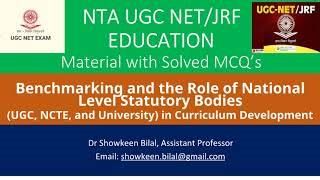
Role of UGC in Curriculum Development
- The UGC is actively involved in curriculum development for higher education in India.
- It reviews and updates curricula to ensure they remain relevant and effective.
- The UGC works in coordination with other bodies, such as the National Council for Teacher Education (NCTE), and collaborates with international organizations on curriculum development.
- Subject-specific committees are constituted to upgrade or reframe curricula at the undergraduate and postgraduate levels.
- The UGC organizes training programs, workshops, seminars, and conferences to facilitate curriculum development.
- It advises the central and state governments on measures to improve university education and monitors its educational channel, Vyas, which imparts education to students.
- The UGC also scrutinizes proposals from universities for new courses and grants, collecting information on India’s university education system and comparing it with other countries.
 Inclusive Education
Inclusive Education
National Council for Teacher Education (NCTE)
In 1973, the National Council for Teacher Education (NCTE) was established as an advisory body for the central and state governments regarding teacher education. Its secretariat is located in the Department of Teacher Education at the National Council of Educational Research and Training (NCERT). The NCTE became a statutory body on August 17, 1995, following the National Council for Teacher Education Act, 1993. Headquartered in New Delhi, the NCTE also has regional committees in Bangalore, Bhopal, Bhubaneswar, and Jaipur.
Both the NCTE headquarters in Delhi and its regional committees have administrative and academic wings. The administrative wings handle finance, establishment, and legal matters, while the academic wings focus on research, policy planning, monitoring, curriculum, innovations, coordination, library and documentation, and in-service programs. The NCTE headquarters is led by a chairperson, and each regional committee is headed by a regional director.
Role of NCTE in Curriculum Development
- Norm Setting: NCTE establishes standards for various teacher education courses, including course content and curriculum delivery methods.
- Recommendations: The council advises central and state governments, universities, and recognized institutes on planning and programming for teacher education.
- Curriculum Updates: NCTE periodically updates the curriculum and prepared the National Curriculum Framework for Teacher Education (NCFTE) in 2009, providing a comprehensive framework for teacher education.
- Systematic Development: The NCFTE (2009) aims for the coordinated development of the teacher education system across the country, focusing on training individuals to teach at various educational stages.
- Innovation and Research: NCTE promotes and conducts research in innovative areas of teacher education.
- 2014 Regulations Revision: The council revised its regulations to include the establishment of teacher education in composite institutions and emphasized yoga education, ICT, and inclusive education in program curricula.
- Open and Distance Learning: The quality of open and distance learning programs has improved due to enhanced quality assurance mechanisms.
Role of University in Curriculum Development
The university plays a crucial role in implementing the curriculum. Its responsibilities include:
- Facilitating collaboration with community colleges to ensure materials are suitable for the college's student population and methods of instruction.
- Ensuring materials are accessible electronically by students, enabling their use for distance learning.
- Working with industry and employee groups to ensure materials prepare students for emerging workforce needs.
- Collaborating with community college members in each region to support the dissemination and use of these materials.
The university's involvement is significant in the curriculum development process, aiming to provide proper guidance to learners.
Conclusion
A curriculum is an instructional and educational program that helps students achieve their goals, ideals, and life aspirations. It should integrate cognitive, affective, and psychomotor objectives and skills.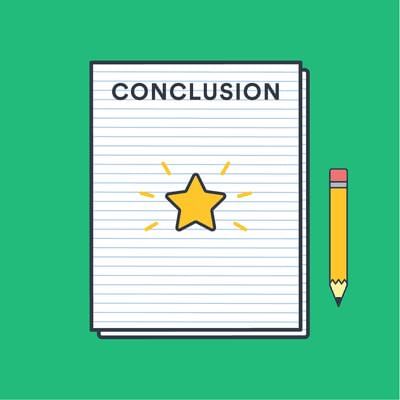
Curriculum development must consider different foundations and be adaptable to multicultural classroom settings. Therefore, careful effort is needed to frame such a curriculum before implementing the teaching process at all levels of education.
|
85 videos|67 docs
|
FAQs on Meaning and Definitions of Curriculum Chapter Notes - Crash Course for UGC NET Education
| 1. What are the main characteristics of a curriculum? |  |
| 2. What are the key principles of curriculum development? |  |
| 3. What are the stages of curriculum development? |  |
| 4. How do philosophical foundations influence curriculum planning? |  |
| 5. What is benchmarking in the context of curriculum? |  |
















